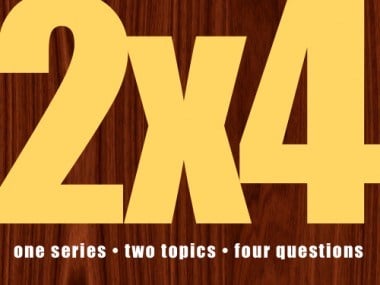You wonder if people like Aaron have a secret, something that lets him do what we can’t. It turns out he does and it seems he’s finally sharing it with us all with his latest project, Frictionless. His new, free manifesto along with Capture Cards, offers a path towards a life without friction. A path that lets you do more and helps you do better. Without any further ado, here’s some insight into how Aaron Mahnke manages to do so much while making it all look far too easy.
Creativity
Have you always considered yourself a creative person? What mediums and inspirations do you gravitate toward to realize your creative goals? At the same time, I suppose I fit the stereotypical notion of what a creative person is supposed to be like. I’m an artist and a writer. I’ve willingly taken pottery classes and sketched models. I’m at home with a palette of color and a blank canvas. And if I had the time (or a time machine), I would be learning an instrument of some sort. Probably drums. If you had to point to one thing, what specific posts or creations are you most proud of and why? Seeing other people do amazing things also gives me a kick in the pants. I’m capable of anything you throw at me. I believe this at the deepest level of my soul. I just happen to get in the way of myself too often. When I see others overcome the friction in their own life, it makes me want to do the same. It gives me permission to try. Any suggestions for those who feel they may not be creative enough to unlock their inner artist? I’m an idea guy, and there’s always something new brewing in my head. So sometimes what is most relevant at the moment feels like the most important. That’s not true, but it feels like it. A core idea in Scott Belsky’s book, Making Ideas Happen, is that the newness of ideas has a tendency to pull our attention away from the ideas that need seen through to the end. I’m proud of my books, and my design work, the Read & Trust Network, the Home Work podcast, and my brand new Frictionless project — all of it, really. But what I’m most proud of is the fact that I shipped them. Period.
Productivity
Can you describe your current personal and professional responsibilities? Then, go create. How do you go about balancing the personal, professional and digital? I manage all that by taking on a set of secondary responsibilities: I’m business owner, a logo designer, marketing designer, writer and business consultant. I spend my week helping people and businesses figure out how to communicate who they are and what they have to offer. I do this full-time, for pay, and with a glad heart. I love my job. What tools and techniques do you find yourself counting on to get through your workload? But when my day is over, I walk out of the room and shut the door and work is left behind. Your calls and emails? I’ll get to them tomorrow. I have an amazing wife and two eager kids waiting to see me downstairs, and they get 100% of me. Digital is tough. It’s like a stowaway rat in my pocket when I leave my office; a little bit of work is always right there with me. And I have a laptop that I bring down each night, just in case something massively important crops up. But yeah, the battle to keep the digital from encroaching into my family time is a constant one. The rule in our house is that during normal family hours (basically whenever the kids are up and in need of attention), our phones are for emergencies only. My wife is better at obeying that rule than I am, but I’m getting there. What is the best starting point for the unproductive amongst us, who are looking to get more organized? One big thing is to always be ready to capture ideas or tasks. I use OmniFocus on my Macs and iOS devices, and that’s the central nervous system for my tasks. Everything I need to do gets tossed into there and organized by area of life (personal, work, side-projects), and given a context regarding how long it will take me to do it. I capture things on the computer, but also on index cards when I’m out and about. For that I keep a few Capture Cards cards in my back pocket, with a Fischer Space Pen (because you can sit on them all day and they’ll never leak). And every night (Sunday through Thursday, really), I sit down with OmniFocus and a notebook and map out the next day. I plan everything out hour-by-hour, giving tasks 30- or 60-minute blocks of time. This does a couple of things for me. It helps me to go into my day with realistic expectations (I can’t overload a day if I’ve added up how many hours everything will take), and it helps me stay on track when the day gets crazy. Plan to succeed, or you can plan on failing. Oh, and the more complicated the tool, the more friction it adds. Find the basic, simple tools that work for you, like scraps of paper, index cards or a notebook. Capture. Plan. Do.
